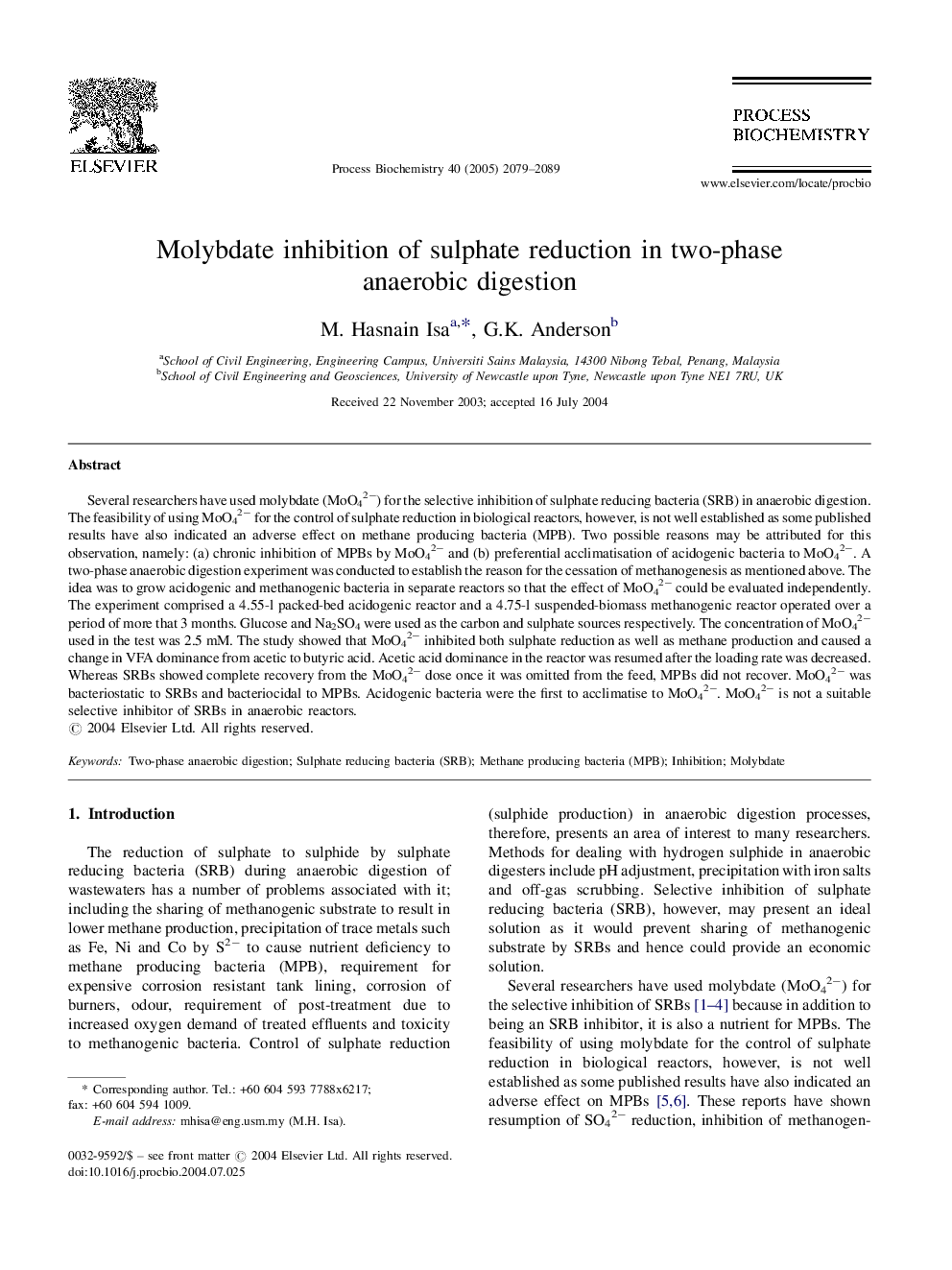| Article ID | Journal | Published Year | Pages | File Type |
|---|---|---|---|---|
| 36688 | Process Biochemistry | 2005 | 11 Pages |
Several researchers have used molybdate (MoO42−) for the selective inhibition of sulphate reducing bacteria (SRB) in anaerobic digestion. The feasibility of using MoO42− for the control of sulphate reduction in biological reactors, however, is not well established as some published results have also indicated an adverse effect on methane producing bacteria (MPB). Two possible reasons may be attributed for this observation, namely: (a) chronic inhibition of MPBs by MoO42− and (b) preferential acclimatisation of acidogenic bacteria to MoO42−. A two-phase anaerobic digestion experiment was conducted to establish the reason for the cessation of methanogenesis as mentioned above. The idea was to grow acidogenic and methanogenic bacteria in separate reactors so that the effect of MoO42− could be evaluated independently. The experiment comprised a 4.55-l packed-bed acidogenic reactor and a 4.75-l suspended-biomass methanogenic reactor operated over a period of more that 3 months. Glucose and Na2SO4 were used as the carbon and sulphate sources respectively. The concentration of MoO42− used in the test was 2.5 mM. The study showed that MoO42− inhibited both sulphate reduction as well as methane production and caused a change in VFA dominance from acetic to butyric acid. Acetic acid dominance in the reactor was resumed after the loading rate was decreased. Whereas SRBs showed complete recovery from the MoO42− dose once it was omitted from the feed, MPBs did not recover. MoO42− was bacteriostatic to SRBs and bacteriocidal to MPBs. Acidogenic bacteria were the first to acclimatise to MoO42−. MoO42− is not a suitable selective inhibitor of SRBs in anaerobic reactors.
